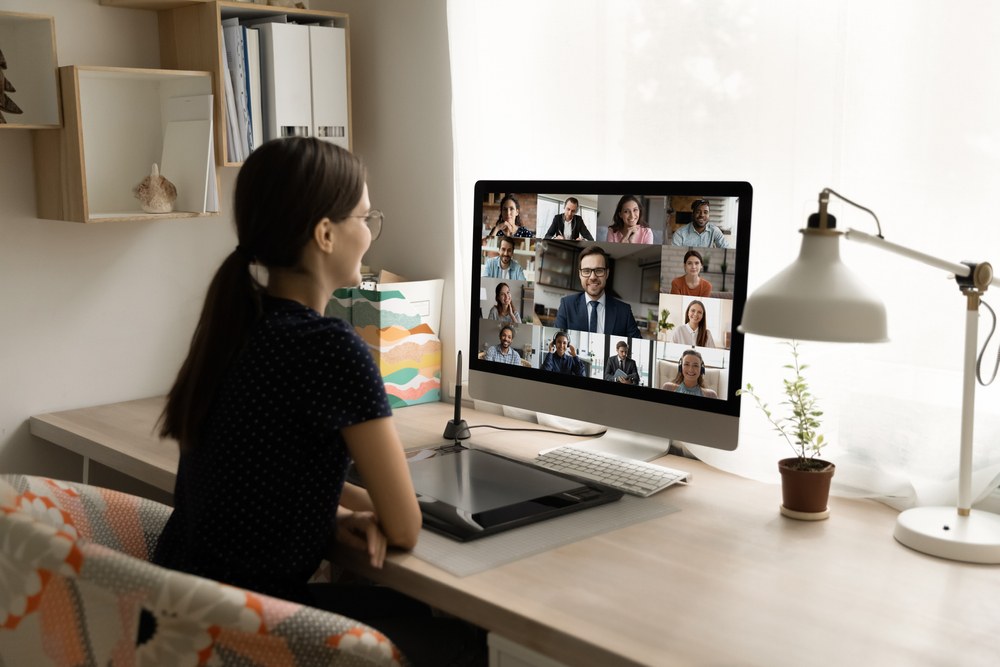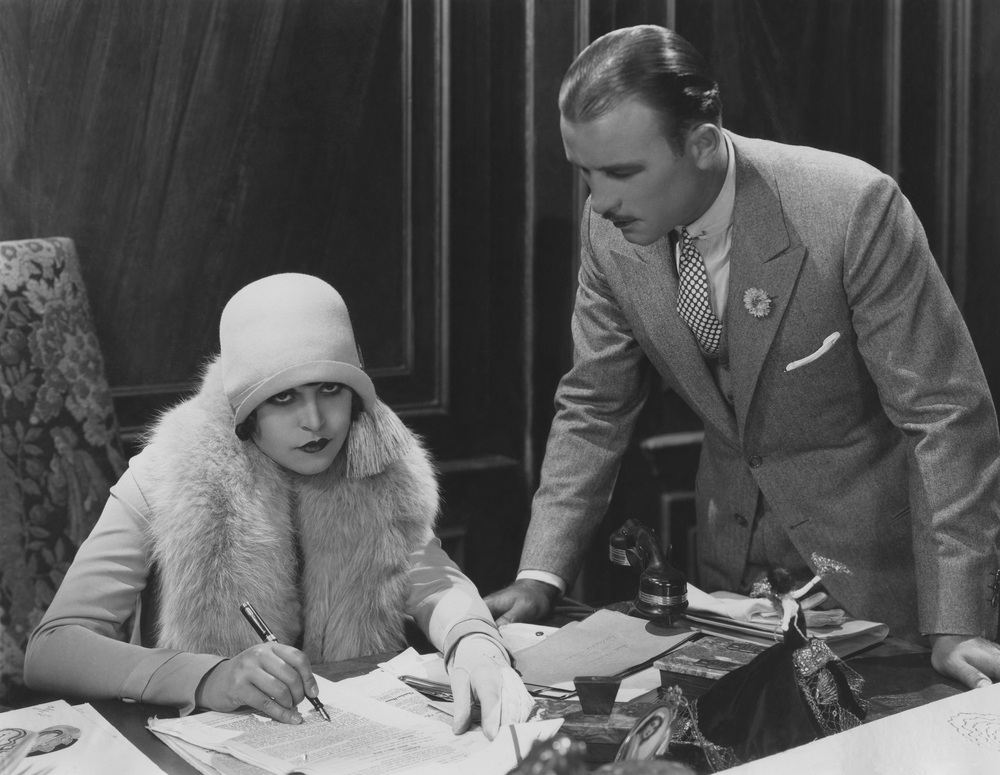Do you feel like you are doing more work, having more meetings, more contact with your colleagues – generally, just more…?
It is not surprising. While there was a soft hysteria of Team and Zoom meetings during the pandemic in an attempt to remain connected – and a way to take back an element of ‘control’ amid the chaos – have we tipped over into an all in, management style that is only serving to bolster burnout?
And it’s not just the meetings. The constant ping of instant messaging – effectively replacing the ‘water cooler moments’ – has become a sticky habit of the hybrid workplace. How do we get the balance right between interruptions, micro-management and warm collegiality?
Responding to feedback received, ArtsHub decided to check in with the sector and ask what are the long-term impacts of pandemic-driven management tactics; and is it time to pull back and trust a little more?

Tricia Walton, Chief Executive, Carclew
I don’t need to go over the struggles of the past (nearly) three years – everyone knows how hard things have been personally and professionally.
It seems to me, however, that 2022 has been the hardest year of the three. We are past the deep anxiety about whether we, and loved ones, are safe; we are past the fear that life may never return to what we have known. Now, some sense of normalcy has returned – but there is ongoing underlying trauma, uncertainty and exhaustion.
2020 required all our staff to rewrite their annual program not once, with the first lockdown in March, but twice, when partial return to the workplace with limited face-to-face delivery became possible mid-year. We then surveyed everyone about working from home options with most staff choosing to work from home between one and three days a week.
There is a natural additional pressure on people when using Teams or Zoom (which workers worldwide experienced in 2020) due to expectations of the medium, and it not quite delivering. And in 2022 it is still not business as usual.
The working from home ‘hybrid’ model can put extra pressure on relationships and workplace culture but I think it is simplistic to categorise it as due to micro-management.
But relationships can be fragile and an amalgamation of the challenges of the past three years can create a sense of ‘burnout’ in some. This can only be managed by a heightened focus on sound communication that is two-way, regular, formal and incidental, and always respectful.
We would not have been able to get to this point without trust in one another and celebration of what has been achieved under trying circumstances.
My tip for a functional, kind, post-pandemic workplace? Communication, communication, communication.
Don’t only rely on Zoom, and don’t only contact someone for work reasons. Check in. And always give someone the benefit of the doubt. They may be struggling more than you are today.
Penelope Benton, Executive Director and Georgie Cyrillo, Interim Deputy Director, NAVA
Throughout the pandemic NAVA moved from a single office in Sydney to staff working remotely from four different states. The move online brought a lot of benefits to NAVA’s work in a national context and also lots of challenges.
The change has meant a lot of experimentation to remain connected as a team. Some things work, some don’t, so we continue to try new approaches and different tools to communicate and collaborate.
We migrated all of our files from a local server onto the cloud, which has made it easier for staff to work from wherever they are. Collaborating on written text has certainly become easier as multiple staff can be in the same document at the same time asking each other questions and making suggestions.
In addition to a weekly staff meeting, we have a half-hour morning check-in every day that is supposed to be half business, half social. Facilitation of these sessions is on a rotational basis across all members of the team.
It is quite difficult to avoid these check-ins being purely transactional as we do tend to talk business for most of it, but the flip side to that is that we share lots of information with each other on a regular basis about what NAVA is working on, what’s happening in local and global contexts that may have impact on artists and the sector, and the types of questions coming through from the members.
This ultimately reduces the need for excessive meetings throughout the day.
This past couple of years has also been a time that members of the team have been able to figure out what works for them personally when working remotely; some enjoy the focus time in their own space with fewer video meetings, others feel energised by more conversation so will have calendar video links dedicated to just being online with another colleague or a small group while working – not necessarily for a meeting purpose.
Georgia Malone, Acting Director, Perth Institute of Contemporary Arts (PICA)
What the past few years have taught us is that we need to prioritise ourselves and our health (mental and physical). In their roles, people saw an opportunity to make a decision for themselves. They saw what mattered most whether it be flexibility, being closer to family or a different challenge, the turnover was constant and felt like we were in a crisis (we probably still are).
The entire sector has seen a lot of turnover with burnout coming from the constant planning, replanning, cancelling, producing and un-producing. There was an expectation that we had to be prepared to turn things around swiftly and without complaint. This need to be responsive and adaptable is exhausting and really took a toll.
Throughout this period, I didn’t find the trust in the team diminished. In WA the impact of COVID wasn’t as severe, so the requirement to work from home was limited and we allowed staff to manage their own time and their own workload.
As a manager the most important thing to do is listen, be open to the team when they have questions and support them. It is guidance that you can offer, rather than micro-management, and the autonomy will be very much appreciated.
I trust the team in what they do; I trust they are completing the tasks, and it is hard to hide when you’re in an event delivery organisation – if you don’t do your job, someone will need to fill the gap and it will reflect badly on you.
At this point of the pandemic, we have identified the need to put more measures in place that support the mental health of all staff. We have the Employee Assistance Program, we have rigorous discussions in the Work Health and Safety Committee, not just about physical safety but ways to support the team, and we have most recently established a Diversity and Inclusion Committee, which comprises team members from the casual pool as well as permanent staff.
I want to empower the team to have ownership over their place in the organisation and support where I can.
My advice for streamlining in the post-pandemic moment? Prioritise your health.
As a manager, listen and treat your team with respect. Listen to them when they call out toxic behaviour and put things into action, so they know their voice has been heard.
An employee is more likely to stick around if they have autonomy, are listened to, and feel trusted. Leading a team isn’t like a ‘family’ – people already have a family; they don’t need it in their workplace – but it’s about mutual respect to ensure you deliver on the goals for the organisation.
Rebekah Butler, Executive Director, Museums & Galleries Queensland
Working from home was necessary during periods of COVID lockdown; however, it wasn’t without its challenges. Initially, there was a novelty to it all – touching base weekly with staff via Zoom – the sounds of kids home-schooling or the dog barking in the background, providing insights into our personal lives that perhaps weren’t previously shared.
These sessions served a function, but they weren’t perfect for the management of staff, programs and operations. They highlighted inadequacies in our organisation’s technology, and lacked the spontaneous in-person conversations that happen in the workplace – valuable opportunities for information sharing and bouncing ideas off one another.
COVID has undoubtedly changed the way we work and, in many instances, increased workloads. Online meetings, while less personal, free up time in our already time-poor schedules. While this can be more efficient, it does not replace the value of visiting another organisation, engaging with colleagues and sharing a personal connection.
Managing staff requires trust – trust in their skillsets, knowledge and ability, and trusting that they will seek help when needed. Similarly, staff place trust in their managers – that they will be supported, nurtured and valued.
This was particularly true during COVID, and did at times require monitoring workloads to ensure they weren’t overcommitting themselves, but it also allowed them to come up with creative solutions to the unprecedented times in which we found ourselves.
Museums & Galleries Queensland’s staff worked incredibly hard during COVID to provide leadership and support to our sector. We were able to achieve what we did while in lockdown by having weekly staff meetings, and separate program meetings on an as-needs basis.
The impetus for working from home has shifted but it is important that we, as managers, continue to provide flexible working arrangements, as much as practicable, and don’t micro-manage staff.
Doing so can undermine a staff member’s sense of worth, and limit the creative thinking and autonomy that we all value in the workplace.





